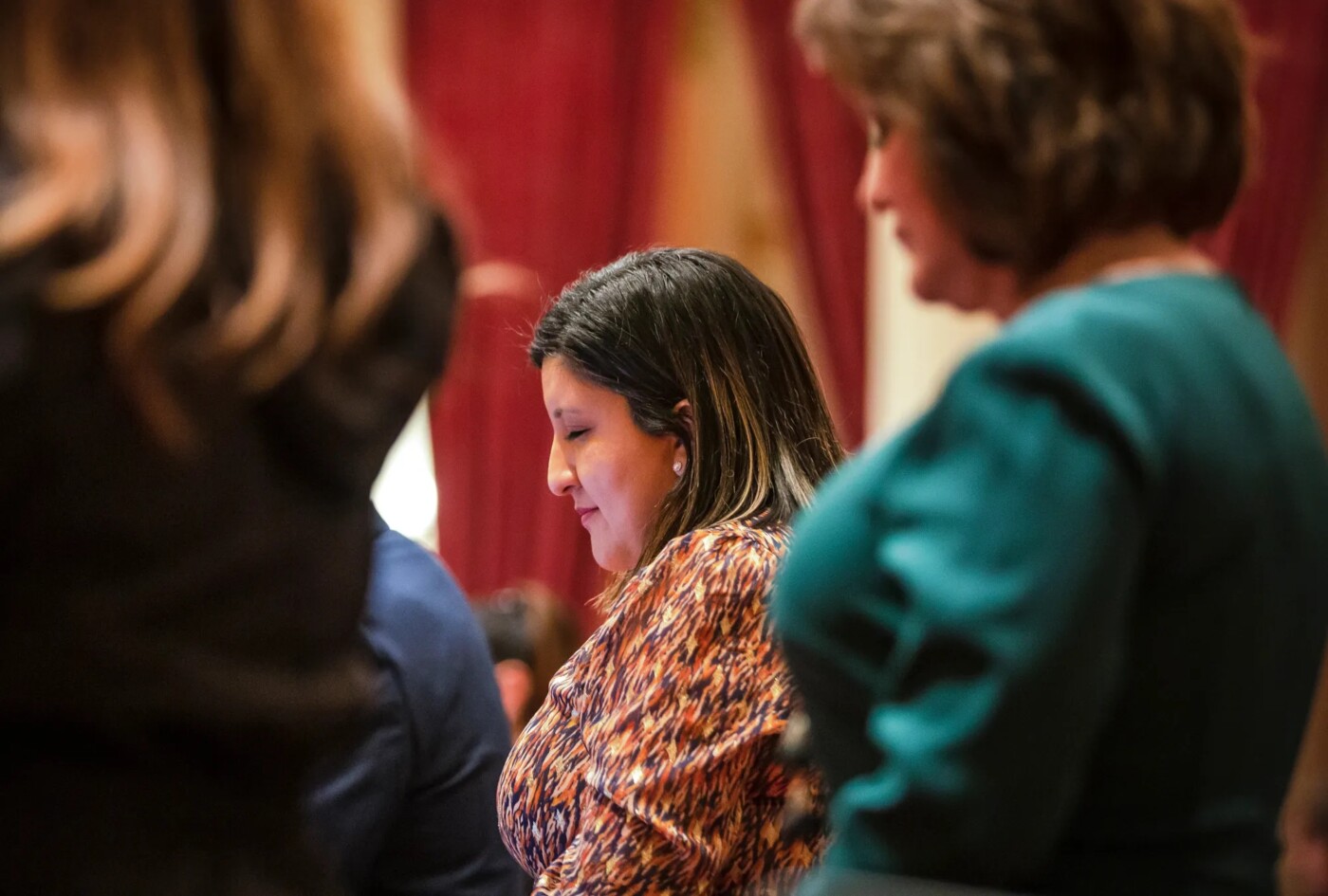One shared takeaway from the otherwise very different starts to new legislative sessions in Sacramento and Washington, D.C.: What a difference 20 votes make.
The Legislature that reconvened Wednesday in the California Capitol is the most diverse in state history, with a record 50 women — although there’s still a slim possibility that number could fall to 49 following recounts for a hotly contested state Senate seat representing Bakersfield.
Democratic incumbent Melissa Hurtado, who eked out a 20-vote win over Republican challenger David Shepard in November, has now requested a recount in portions of Kern County not covered by the separate recount request Shepard filed last month. Initial results from Shepard’s recount request — which encompasses Fresno, Kern, Kings and Tulare counties — show Hurtado holding onto her seat, though Shepard has gained seven votes, CalMatters’ Alexei Koseff and Sameea Kamal report.
- For more takeaways on what state lawmakers got up to on their first day back in Sacramento in 2023, check out Alexei and Sameea’s dispatch.
In Washington, U.S. Rep. Kevin McCarthy is also being stymied by 20 votes.
That’s the number of congressional Republicans, 19 of whom are associated with the far-right Freedom Caucus, who have thus far refused to support the Bakersfield Republican’s bid for Speaker of the House — a post recently vacated by San Francisco Democrat Nancy Pelosi. The result: The House adjourned Wednesday after its sixth failed attempt to elect a speaker — rendering it essentially nonfunctional, preventing newly elected members from being sworn into office, and creating what President Joe Biden deemed a “really embarrassing” situation.
- Representative-elect Ted Lieu, a Los Angeles Democrat, told the Associated Press: “I don’t know what my status is. I don’t know if I have health care, I don’t know if my staff get paid. We’re looking at all of that now because this hasn’t happened for 100 years.”
The House is set to take up the matter again today, and McCarthy has repeatedly expressed confidence that he’ll end up with the necessary votes. But his failure to win the speakership on the first vote — a situation that hasn’t occurred since 1923 — could be yet another sign of the challenges facing the California Republican Party.
Seemingly central to the conundrum of the state GOP is former President Donald Trump: Should politicians denounce him, support him or stay neutral?
Some have tried to sidestep the issue by avoiding mention of Trump entirely. Others, including Lanhee Chen, the Republican controller candidate in California’s November election, have apparently tried to appeal to a broader swath of voters by publicly disclosing they didn’t vote for Trump. But neither strategy has proven to be particularly effective: Chen lost to Democrat Malia Cohen, 55% to 45%. No Republican in California has won statewide office since 2006.
McCarthy, meanwhile, has remained loyal to Trump, and Trump has publicly urged House Republicans to back McCarthy’s speakership bid. But, in a possible sign of Trump’s waning influence, Freedom Caucus members don’t seem swayed.
The result could be that California, long used to having one of its representatives hold the top position in the House, may end up with less influence and sway on the national stage — and possibly fewer benefits for its own residents.
Even assuming McCarthy were to replace Pelosi as speaker, California is “mindful that we’re going to have to be more proactive as a state in terms of our efforts in Washington, D.C.,” Gov. Gavin Newsom said in November.
